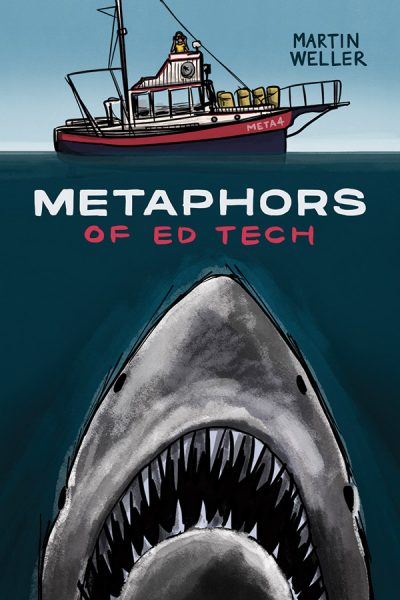The Theory and Practice of Online Learning
edited by Terry Anderson

Subjects: Education, Online, Technology and Society
Series: Issues in Distance Education
Imprint: AU Press
Listen to the accompanying podcast at blog.edtechie.net/podcast.
The criticisms leveled at online education during the Covid-19 pandemic revealed not only a lack of understanding about how educational technology can be deployed effectively, but a lack of imagination. Martin Weller provides new ways of thinking about educational technology through a wide range of metaphors. By using metaphors as a mental model, Weller enables educators to move beyond pragmatic concerns into more imaginative and playful uses of technology and to critically examine the appropriate implementation and adoption of ed tech.
Weller provides an insightful analysis of competing and co-existing ‘ed tech’ metaphors and our complex relationship with them in a widely accessible manner anchored in both practice and critical scholarship. This refreshing and thought-provoking volume will be particularly valuable as we look towards the post-pandemic future.”
Mark Brown, Director, National Institute for Digital Learning
I love metaphors, and this book does something that very few ever do: it simultaneously invites creativity by inviting the reader to imagine, and criticality, by using metaphors to expose hidden aspects of educational technology not tackled by dominant discourse. It gives the reader the opportunity to step back and look at things differently, and in so doing, can potentially transform the conversations we are having.”
Maha Bali, American University in Cairo
A fun and robust read. Using the entertaining lens of metaphors Weller has deftly unpicked much of the dangerous ‘tech will save us’ thinking which surrounds digital education. This book will be fuel for papers, talks, and strategies across the education sector for years to come.”
David White, University of the Arts London
This work is licensed under a Creative Commons License (CC BY-NC-ND 4.0). It may be reproduced for non-commercial purposes, provided that the original author is credited.